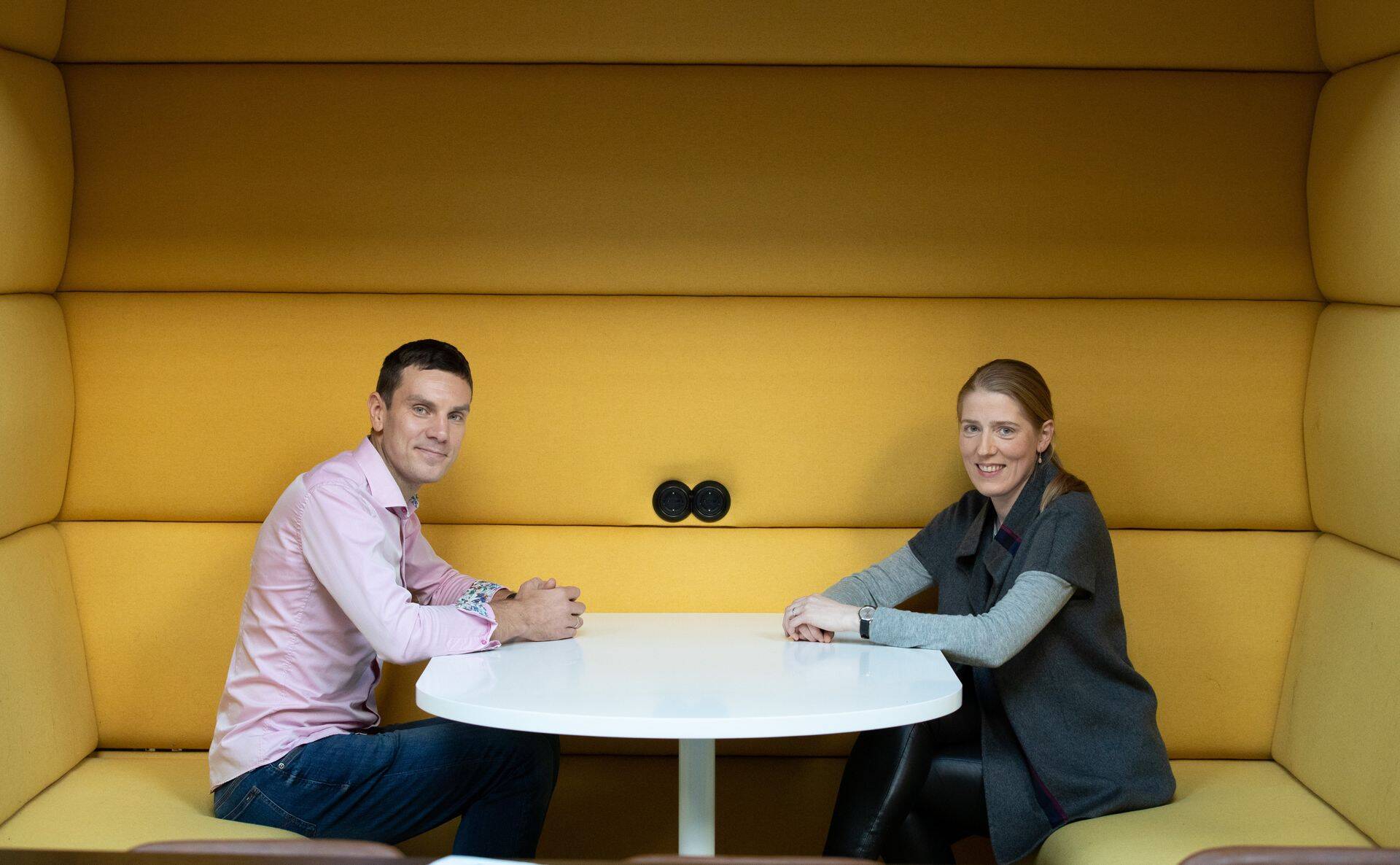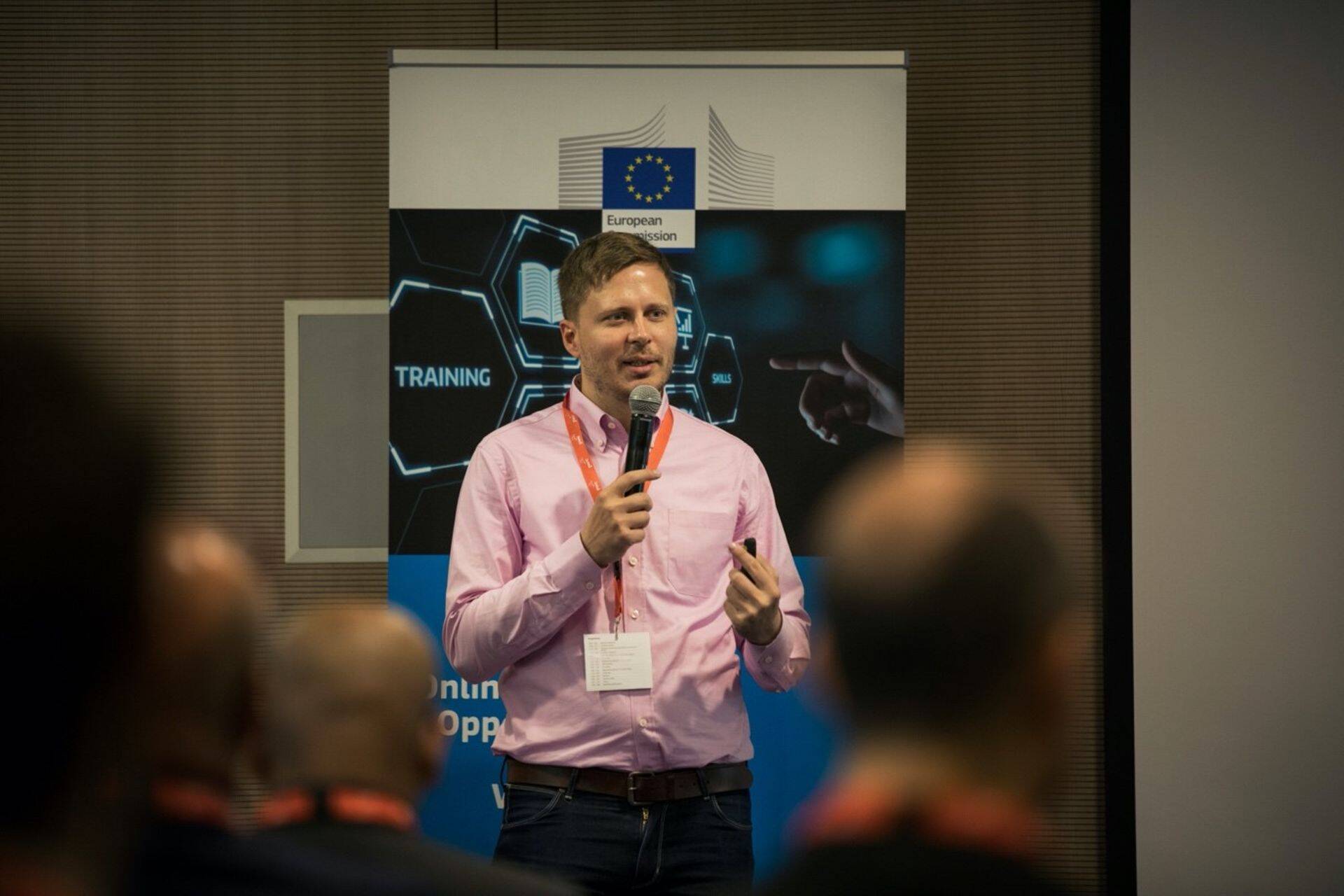Tähelepanu! Artikkel on enam kui 5 aastat vana ning kuulub väljaande digitaalsesse arhiivi. Väljaanne ei uuenda ega kaasajasta arhiveeritud sisu, mistõttu võib olla vajalik kaasaegsete allikatega tutvumine
On the Positive Side of the Crisis. Scaling Education Nation
Due to the global crisis caused by the spread of COVID-19 virus, Estonian edtech startups have decided to offer their products and services to the world for free. In one day, a platform was created and an ever-expanding list of services and products was put together.
Tõnis Kusmin, co-founder and CEO of the math game platform 99math, is one of the leaders of the initiative. He and his team have had long days and sleepless nights since Thursday, working on customizing their products to support current crisis situation where children are distance learning and go out less. Kusmin is convinced that the crisis has given Estonia an opportunity to show the world how powerful we are as an education nation.
The initiative was created to provide support for organising distance learning in Estonia and to other countries and the private and public sectors are cooperating. "How it happened was that we took a very quick step with a bunch of entrepreneurs, and the public sector stepped in immediately and encouraged us to go even faster," said Kusmin.
They quickly found out which products could currently be offered to support e-learning or getting through the curriculum in Estonia and internationally and in what languages they could be used.
Quick adaptation
Within a few days, 99math has developed a new version of their product that supports distance learning. While previously the 99math application was designed to be used for solving math problems in the classroom, then the new version allows the teacher to give children tasks to solve at home. At the same time, the task remains social. Children will be able to compare the results, which serves as motivation to improve their performance.
This week, a real-time online math game will take place. In a situation, where physical contact between people is minimized, such "virtual encounters" are essential. “We've done real-time math tournaments online before and we have good experience with that. But these were very large events that require a lot of work to organise. Now we are customizing this product to bring together children who are at home for weeks and have little social contact and fun, several times a week. They all get online and have their classmates and schoolmates there and children from other schools and they all play math games against each other,” Kusmin said.
The game is international and can be played in Estonian and in English, games will be held both in European and US time zones. It is very easy to play the game and people with even very little knowledge of English can participate.
Clanbeat, a provider of personalised growth support tool, has also responded promptly to the situation and, seeing a big need for it, has opened its virtual teachers’ room to schools. On Clanbeat platform, teachers can share best practices with each other and school authorities can share information with teachers on the current situation. According to Kadri Tuisk, founder and CEO of Clanbeat, over 200 schools have already registered, of which more than 100 are from other countries, and the numbers are growing fast. Clanbeat is working with the public sector to tailor the product to the needs of schools. The necessary initial changes to adapt the product to the situation were introduced within half a day, and within a couple of weeks they hope to get the platform ready for teacher-student communication as well.
Others are just starting out
According to Kusmin, Estonia is well adapted to the use of e-services, also in the education sector. While Estonia was already considered a strong e-state five years ago, it didn’t really show yet in education. Everybody had a mobile phone, but it was not common to use digital devices for classroom activities, with a few innovative schools as exceptions.
“Today, the infrastructure has been significantly improved, and digital solutions are being used extensively. Teachers are accustomed to digital solutions in education, so in the current situation where the world needs to very quickly adapt to using e-services in education, Estonia is well ahead not only in the private sector but also in the public sector the teachers have some very useful experiences that we could share with the world. "What the others are just starting to learn, we already know," Kusmin said.
Hetkel kuum
There is a greater need for edtech solutions today than ever before.
Over the weekend, a webinar was held on distance learning, where hundreds of people registered and hundreds of questions were discussed. According to Kusmin, a similar webinar by the best Estonian educational technologists could be offered to the world. “They are looking at Estonia. We are a strong PISA country and renowned for our e-services. There is a greater need for edtech solutions today than ever before,” he added.
The need for edtech services is growing
The need for digital solutions in teaching and learning in the current situation is growing and for edtech startups that offer such services it can bring in many new clients, Kusmin said. Also, entertainment portals like YouTube or the Estonian ALPA Kids are becoming even more popular, according to Kusmin, because people stay more at home, have time to learn and discover. The use of computer games and playful educational technology solutions will also likely see an increase.
Estonia's small size is a powerful advantage, the Estonian market is usually not enough to sustain a business in the education sector. The Estonian entrepreneur has to solve right from the start the fundamental issue of how to sell a service or product also outside of Estonia and in the current situation it is easier for us to adapt to the new situation and offer our products and services internationally.
The 99math team has from the start been developing a scalable company, not just one that has a decisive impact on a person's education, but one that reaches as many people in the world as possible. Today, this potential impact can be clearly seen. 99math products require very little adaptation to the educational systems of different countries.
Current situation is bringing about fundamental changes in the way schools operate and teaching is done.
According to Tuisk, the initiative is good for Clanbeat also in the long run. It will provide a broader base for product development with a large number of users to learn from. “The situation we are currently experiencing in Estonia and around the world is bringing out fundamental changes in the way schools operate and teaching is done. Being in the epicenter of those changes means a lot to us,” she concluded.
99math was founded in 2019 by computer game enthusiast Timo Timmi, the founder of learning content platform Tebo Tõnis Kusmin and software engineer Ain Arend.
Clanbeat was founded in 2016 by Kadri Tuisk.
Find the list of services offered by edtech startups HERE.
...
FoundME is inviting you on board of a weekly newsletter that will bring you the news and opinion stories from the Estonian startup scene. - Subscribe to FoundME newsletter HERE!
Seotud lood
Iga idu saab alguse ideest. Aga esimene asi, mida teised märkavad, pole sinu pitch deck ega MVP – vaid domeen. See on sinu startup’i esimene pitch. See on see, millega astud oma tiimi ette Slackis, jagad ideed angel investorile LinkedInis või paned selle Product Huntis avalikuks. Kui domeen kõlab nõrgalt, kõlab nõrgalt ka idee.
Enimloetud
5
Viimased uudised
Hetkel kuum
Liitu uudiskirjaga
Telli uudiskiri ning saad oma postkasti päeva olulisemad uudised.
Tagasi FoundMe esilehele











